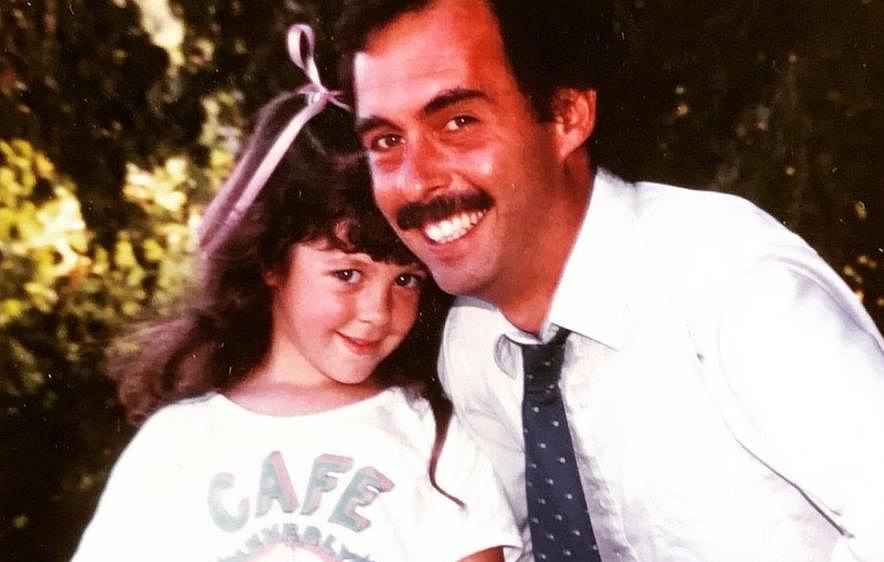






See listing of Recent and Most Popular articles on the Home Page
My World
Category: Faith, Religion & Spirituality / Topics: Bible • Coping • Crisis • Disaster • Faith • God • Loss & Grieving • Social Issues • Tragedy
Help, Lord, the World is Upside Down!
by Stu Johnson
Posted: November 10, 2017
Keeping perspective when nothing seems right in the world…
No. 2 in the Thursday Morning Guys series (see list)
The following is inspired by another meeting of the “Thursday Morning Guys” group I have been attending at a local church. The first article, “Help, Lord, I’m Falling Apart!” (October 22), dealt with how we respond to the health issues that often seem to increase in retirement.
The November 2 gathering followed the terrorist truck attack in New York. Only days later, we heard of the tragic shooting at a Texas church that took 26 lives and injured 20 (at last report). Both of these followed the mass shooting in Las Vegas—all within a matter of weeks. Discussion was started using additional examples of an upside-down world from the email prompt sent before the gathering:
My neighbors I am told are now spending nearly as much on Halloween decorations as on Christmas decorations. England is “celebrating” 50 years of legal abortion. The wrangling among those that would govern us seems not to be any less crabby today than yesterday or last week or last year. So how do we maintain our equilibrium and not let all this darken our resolve to live in Peace, Love, and Joy?
While the discussion prompts were wide-ranging, the intensity of recent tragedies overshadowed other elements of our upside-down world: cultural confusion, the drift from biblical morality, political and social division. What follows are my own notes, paraphrased and consolidated into themes from the wandering conversation of that morning’s gathering:
Reacting to a world upside-down
- There is fear and anxiety, and there is grief. Grief (and the scripturally related practice of “lament”) is necessary, but can take considerable time to play out. Trying to rush can only propel us into deeper fear and anxiety. While it can be very helpful and appropriate to “magnify the Lord” as a way of taking our mind off of inexplicable tragedy, it may be even more helpful to lament, a practice that is often missing from our faith. Lamenting (found with Jeremiah and other Old Testament prophets) allows us to go to God when no solution is apparent—remembering God’s love and faithfulness over time, in spite of situations that leave us numb.
- Tragedies often lead to heroic action. There were numerous examples in the Las Vegas shooting (which garnered a good deal of attention until the New York terrorist truck attack wiped Las Vegas from the media memory), Some lost their lives or suffered serious injury while protecting others in the crowd, and others who helped people escape the mayhem. The Texas church shooting involved two gun-bearing neighbors who drove the attacker from the church, preventing an even more disastrous situation (as absurd as that sounds, since the actual numbers are staggering).
- Laughter can be good, but can come too soon. It is a defense mechanism. The “gallows humor” of those who deal with tragedy all the time is an example—it may seem inappropriate, but may also represent an important safety valve for first responders and medical staff who frequently deal with tragedy. The problem is exposing others to what appears to be an insensitive response.
- One of the men told of a friend who lost a house in a mudslide. He reportedly said, “Lord, this is your house. Personally, I wouldn’t have treated it this way.” It’s the kind of humor that deflects the hurt, while representing a kind of lament. On the other hand, if we feel anger about a situation, it is not inappropriate (or sinful, as some may feel) to approach God from the depth of our feelings.
- In a world saturated with media—24-hour news along with social media—fear and anxiety can be magnified. We should be well informed and well-connected, but need a sense of balance. I was a news junkie myself for many years, but to promote my own sanity, backed off, spending more time reading widely or watching television that focuses more broadly on the world around me (I especially appreciate much of the programming on the PBS Create and Prime channels of our local PBS station). There is a lot about this world that is upside-down from what God intended, but there is still much in the world that carries his stamp: beauty, wonder, majesty, creativity, human kindness and unselfish service.
The Christian response to a world upside-down
- Focus prayer on those involved in situations you witness in person or in news reports—victims, bystanders, first responders, and others. For example, you may be driving somewhere, consumed by thoughts of your own responsibilities or problems, when you pass an accident. Praying for those involved instantly pushes your own concerns to the background. Even a minor accident can mean it will be a long time before things are normal again for those involved—police reports, insurance claims, damage repair, and in the worst case, dealing with loss of life or prolonged recovery from injuries. You can apply this principle to many situations, from relatively minor irritations to catastrophic tragedies.
- The use of prayer lists, calendars, and other tools can be very helpful in establishing the discipline of prayer on a regular basis. Developing situational awareness will help you quickly respond with prayer whatever the circumstance.
- Seek out others for mutual encouragement and grounding in a biblical perspective of the world and God's purposes for us in it. How can we help make sense of things, defuse strife, and bring trust to a broken world?
- Your own spiritual center of gravity is critical. One of the guys recalled a quote of Mother Teresa, who found joy in the most dismal of circumstances: “Never let anything so fill you with sorrow as to make you forget the joy of Christ risen.” (See a collection of Mother Teresa quotes on joy at AZ Quotes).
- Scripture (the Holy Bible) offers guidance. A few phrases of many that come to mind:
- “fear not” - found in various situations (see Genesis 15:1, God’s covenant with Abram; Exodus 14:3, Moses to the people of Israel; Isaiah 35:4, one of 13 passages using that phrase in that book alone; Luke 2:10, the angel to the shepherds at the birth of Jesus; Revelation 1:17, John’s vision)
- “peace be with you” - Jesus’ words to his disciples in his post-resurrection appearances (see John 20:19)
- “let not your hearts be troubled” (see John 14:27)
- “It came to pass” (2 Kings 15:12) - expresses both the idea that the present difficulty will not last, and the trust we can put in the promises that God has made (found in His Word, the Bible).
Search all articles by Stu Johnson
Stu Johnson is principal of Stuart Johnson & Associates, a communications consultancy in Wheaton, Illinois. He is publisher and editor of SeniorLifestyle, writes the InfoMatters blog on his own website and contributes articles for SeniorLifestyle. • Author bio (website*) • E-mail the author (moc.setaicossajs@uts*) • Author's website (personal or primary**)* For web-based email, you may need to copy and paste the address yourself.
** opens in a new tab or window. Close it to return here.
Posted: November 10, 2017 Accessed 584 times
![]() Go to the list of most recent My World Articles
Go to the list of most recent My World Articles
![]() Search My World (You can expand the search to the entire site)
Search My World (You can expand the search to the entire site)
![]() Go to the list of Most Recent and Most Popular Articles across the site (Home Page)
Go to the list of Most Recent and Most Popular Articles across the site (Home Page)
 Loading requested view...
Loading requested view...